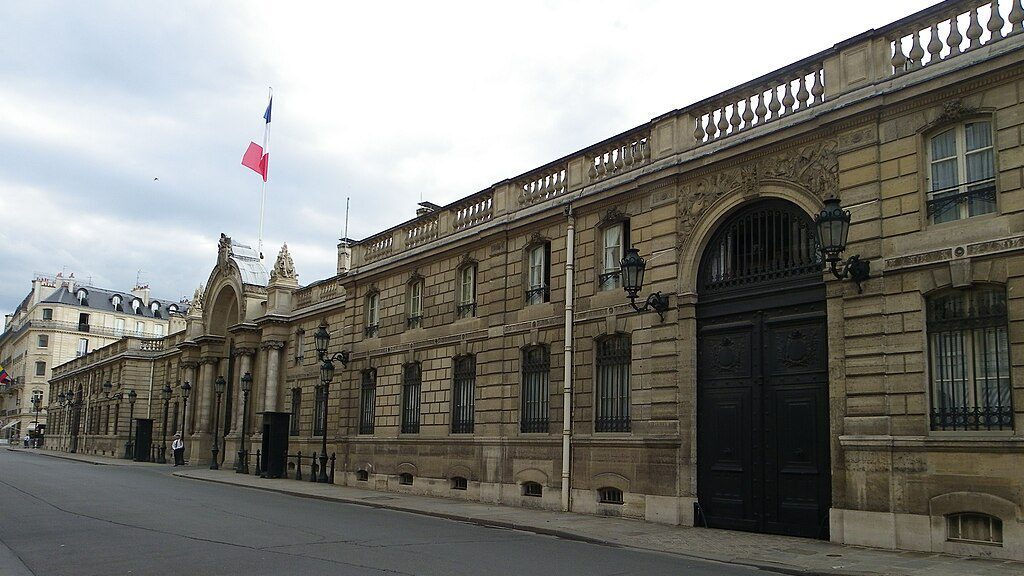
The Élysée Palace in Paris, France
Erwmat, CC BY-SA 3.0, via Wikimedia Commons
Just a week after the vote of no-confidence that brought down Michel Barnier’s government, France is still without a prime minister despite President Macron’s promise to find a successor “quickly.” The equation is as difficult as ever to solve: find a candidate who is unlikely to be toppled by either the Right or the Left. At the same time, given the failure of the budget vote, a temporary finance bill is due to be examined by the council of ministers.
Since Thursday, December 5th, and Michel Barnier’s resignation, the president of the republic has stepped up consultations with representatives of the political parties likely to help him choose a new prime minister. He has announced a new round of negotiations for Tuesday, December 10th. Macron is relying on his ‘common base’—the centre and centre-right parties—but is also meeting the left-wing parties that voted for censure, while remaining open to discussion. This excludes the La France Insoumise (LFI) party on the Left, which refuses to compromise and wants a prime minister from its own ranks, and Marine Le Pen’s Rassemblement National (RN) on the Right.
According to the political leaders who took part in the first wave of discussions at the end of the week, Macron intends to proceed differently this time from the search that led him to choose Michel Barnier in September: not primarily to look for a name, but to agree on the policy to be pursued. The objective announced by the Élysée is therefore to agree on a “method” and a “programmatic platform.” However, the details have not been specified.
The RN expressed its deep indignation at not having been invited to these discussions. Interviewed by BFM TV, the party’s vice-president, Sébastien Chenu, called it “an absolute mistake” that demonstrates the contempt in which the head of state holds the RN’s 11 million voters: “The fact that France’s leading party is not considered, not listened to and not received is an insult to our 11 million voters. Emmanuel Macron is telling them ‘I despise you, you don’t count!’,” he exclaimed.
Le fait de ne pas considérer, ne pas écouter et ne pas recevoir le premier parti de France est une insulte faite à nos 11 millions d'électeurs. Emmanuel Macron leur dit "je vous méprise, vous ne comptez pas !" @BFMTV pic.twitter.com/VpVunTulQP
— Sébastien Chenu (@sebchenu) December 10, 2024
On the Left, LFI is trying to put pressure on its partners in the New Popular Front (NFP) coalition—socialists, greens, and communists—not to form a national unity government, which the party would consider a betrayal. This would be tantamount to “destroying the New Popular Front,” explained MP Manuel Bompard, who is still hoping that Macron will end up appointing Lucie Castets, their favourite candidate who came to the fore this summer, as prime minister.
Within the NFP, opinions differ. The communists are calling for a “left-wing” prime minister, without any further details. Some socialists are pushing for a compromise with Macron’s party, while the greens continue to show their support for Lucie Castets, while taking part in discussions at the Élysée Palace. An inaudible mess.
On Wednesday, December 11th, the council of ministers is due to examine a ‘special’ and temporary finance law, which will apply from January 2025. This is the procedure required in the absence of a vote on a comprehensive finance act for 2025, which failed to secure a majority in early December. It will enable the state to levy taxes and thus ensure the operation of public services on the basis of the 2024 budget.
